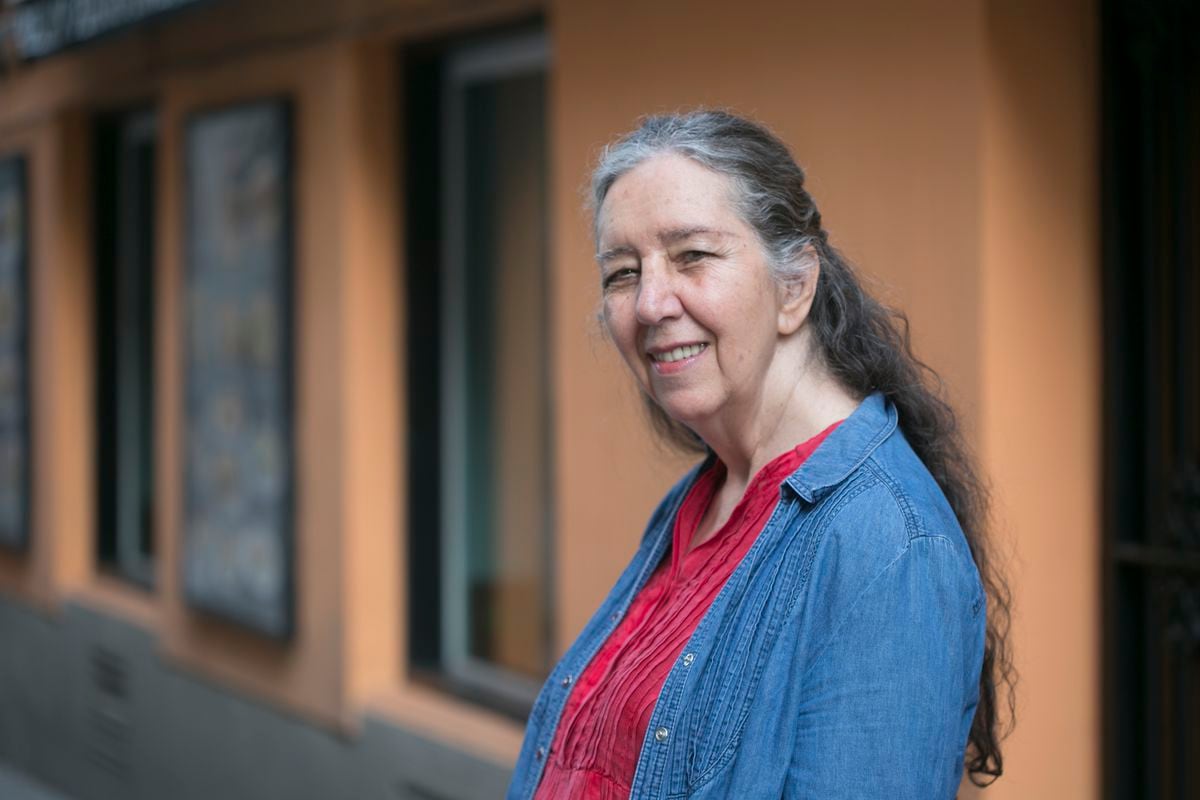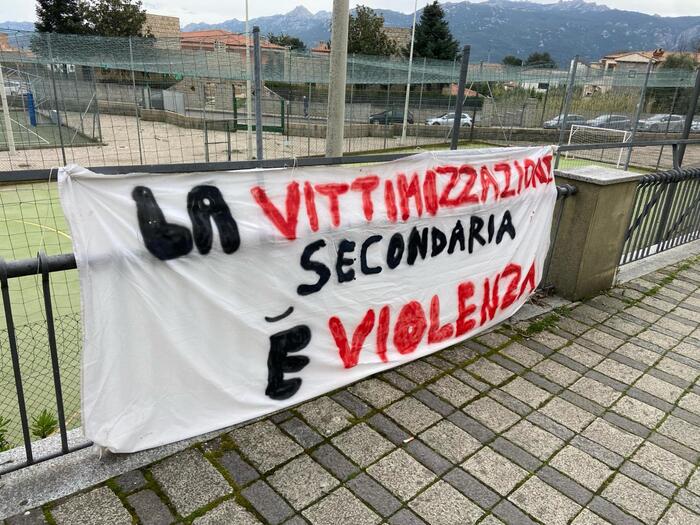Portrait of Aída Mulato Salinas, victim of sexual abuse, leaning on her case folder, in Mexico City.seila montes
Aída Mulato, 35, leans on the more than 1,000 pages in her rape investigation folder.
The mountain of papers is so heavy that to transport it, the young woman with the slim body, black hair and slanted eyes uses a shopping bag.
It looks like a phone book.
Handled, pointed out and studied in detail.
Mulato knows the ins and outs of the file because in these last two years, his life has revolved around him.
Obtaining justice has become an exhausting and re-victimizing process in which she has learned, together with her lawyers, not only to defend herself from her aggressor, but also from the justice system.
“I understand that women do not report or do not complete their legal proceedings because, as the system works, the aggressors can continue to violate us in complicity with the authorities.
In this macho system in which we live, how you were dressed weighs more, if you defended yourself, if you had an abortion or if you have had several partners.
The Mexican State is not interested in solving violence against women ”, Mulato sentence.
The woman enters through the door of the Attorney General's Office of Mexico City (FGJ), a building that occupies a whole block and is known as “the bunker”, clinging to her papers.
A few weeks ago, a group of hooded women attacked the facilities and burned boxes with files as a protest against the police repression in the march against the femicide of the young Alexis in Cancún, Quintana Roo.
This November 25, the day to eradicate gender violence, thousands of women will protest in the country against a State that does not protect them.
Fed up and the feeling that justice never reaches women in Mexico, has made the prosecutor's offices and prosecutors - in charge of investigating complaints - one of the targets of feminist protests.
In a country where 10 women are murdered a day and the impunity rate for crimes exceeds 95%, only one in ten dares to report it, according to official data.
There is a word that floats over all these cases of violence: revictimization.
Adding to the feeling of insecurity in the country is a system incapable of protecting women that violates them at every step.
Aída's investigation was plagued with so many irregularities, that she ended up at the bottom of a drawer, like most.
In the first psychological appraisal they made, the sex crime specialists copied and pasted information from another case that had nothing to do with Mulato's complaint.
In 2020, the Prosecutor's Office acknowledged in a report that it had done its job poorly and, therefore, that it could not close the case.
Due process was lacking and the gender perspective was not applied at any time.
Now, the Mexican State is obliged to repair the damage.
"My case had already been archived, but it was rescued again when the Human Rights Commission of Mexico City included it along with 16 other cases of victims of sexual violence in recommendation 08/2019, for institutional violence," he stresses.
"Institutional violence is carried out against women at all levels of the State and is included in the law at the federal level and in state laws," says Suhayla Bazbaz, director of the Community Cohesion and Social Innovation (CCIS) organization.
Police, prosecutors and judges violate women when they are not treated with dignity, they are tried to dissuade them from abandoning the complaint, they are prejudiced or the gender perspective is not applied either in the investigation or in the trial.
An example of this is the feminicide of Abril Pérez a year ago and the chain of legal and expert errors that ended her life.
“Legislative and executive power officials also violate when feminist protests are criminalized or laws are passed against their rights,” explains Bazbaz.
Since the new prosecutor took office two years ago, Ernestina Godoy, the FGJ has opened 300 investigation files for sexual crimes against police officers and elements of the National Guard and the Sedena.
Eight out of 10 occurred when public servants were on duty, according to the CCIS.
Only 13% of them have managed to get before a judge.
"The Office of the Prosecutor for sexual crimes currently has 9,000 unsolved files and another 19,000 in the Office of the Prosecutor that is in charge of family violence," says Ximena Ugarte, Legal Adviser of the National Citizen Observatory of Femicide.
Aida, who is part of that visible 10% who denounces, enters the labyrinth of windows and offices in the "bunker" until she finds the office of the public prosecutor (MP) that handles her case.
The chair is empty.
The official who was investigating her folder has been transferred to another unit without prior notice and her partner will be in charge of continuing the investigations: 235 more cases that she has just inherited in addition to her own.
The official begins to read a wrong file until the victim explains that this is not her case.
He goes back through the mountains of filing cabinets and after a few minutes he finds the correct folder.
Meanwhile, stacked papers and cardboard boxes full of documents pile up in the corridors, on tables and chairs.
As the new prosecutor does not know the matter, the young woman has to recount, again, details of her violation at the hands of a doctor, a public official.
Someone who, according to the victim's account, took advantage of the relationship of trust to drug and abuse her.
Despite the slap on the wrist from the Human Rights Commission, the Prosecutor's Office once again incorporated a new psychological evaluation full of prejudices, details of his personal life that had nothing to do with the violation and new false information.
“There is a systemic failure that has to do with the patriarchal culture and with acts and omissions of public servants who are breaching the State's obligation to respect and guarantee the right of women to a life free of violence.
Saying that it is a systemic problem does not reduce the responsibility of those in public office ”, Suhayla Bazbaz concludes.
Ximena Ugarte agrees with this statement and adds: “In this country women get justice based on fighting it themselves.
If they do not fight, the State does not protect them ”.
After more than two hours, Aída Mulato leaves the Prosecutor's Office with a bitter taste in her mouth.
“We must talk about the importance of being able to judge and convict sexual offenders, because rape is the prelude to femicide.
If they are killing 10 women a day in Mexico, it is because the State is not doing its part with regard to sexual offenders ”.
His fight for justice is not over yet.

/cloudfront-eu-central-1.images.arcpublishing.com/prisa/C5ZF3BJLFJD2VAWXKQO3Z2CDQY.jpg)







/cloudfront-eu-central-1.images.arcpublishing.com/prisa/NS3ZU25XBNH4BJLTJPBCRCLEXE.jpg)





